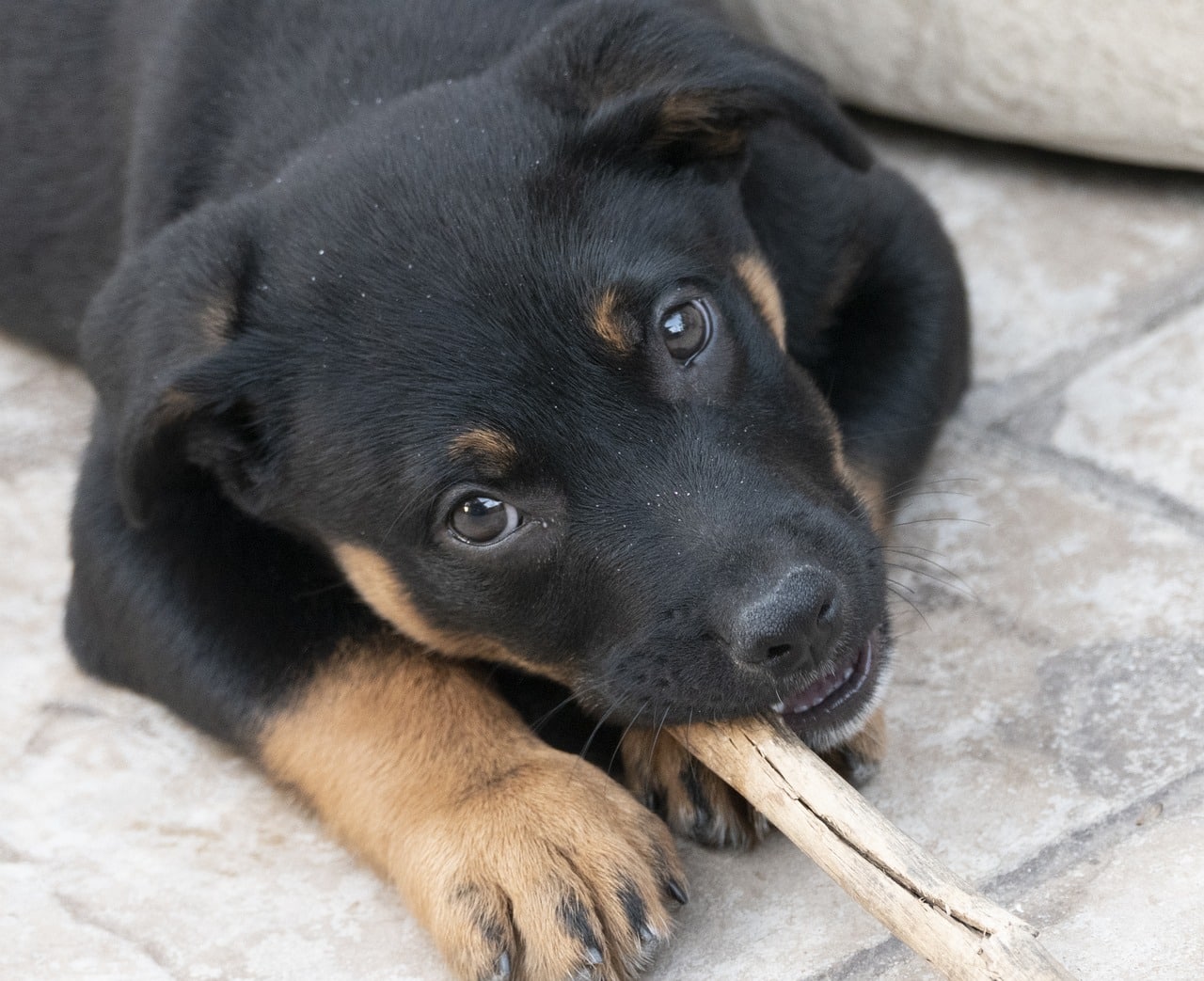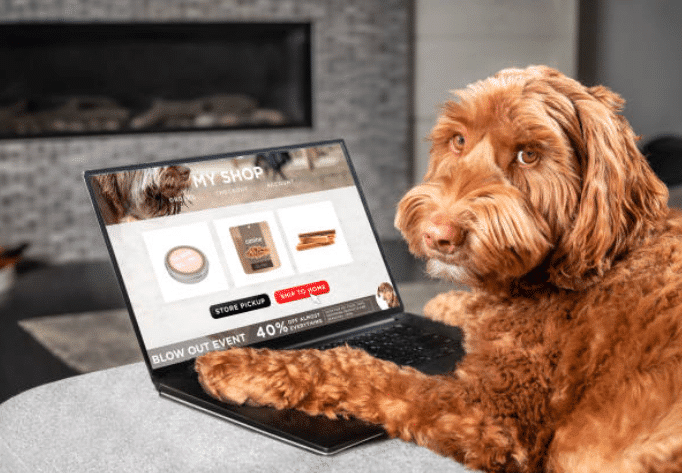Why Chewing is Vital for Dogs: 6 Natural Reasons

Chewing is deeply ingrained in the canine psyche and genes as an instinctual behavior that fulfills a variety of biological needs. In the wild, dogs would gnaw on bones and other objects to obtain nutrients, relieve teething discomfort, and maintain oral hygiene.
But beyond being an enjoyable way for dogs to pass the time, chewing serves a multitude of essential purposes for dogs, both physically and mentally. Chewing provides exercise, stress, anxiety and pain relief and at its core is a basic satisfying behavior for most dogs, especially puppies. This is why it’s so important for dog parents to provide regular, appropriate and safe chewing outlets for their furry companions. Be assured, if you don’t offer such outlets, your dog will find his own!
Below are six reasons why chewing is crucial for dogs of all ages.
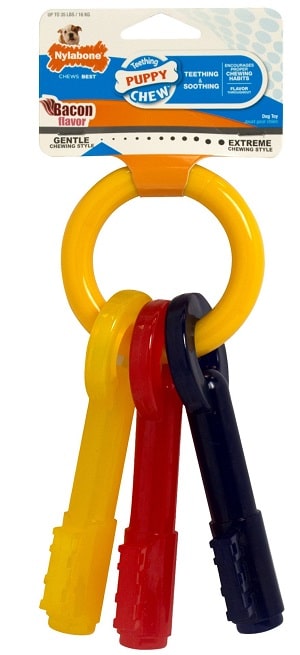
1. Chewing and Puppies
For puppies and young dogs, chewing is a natural way to relieve the pain of incoming adult teeth. As their discomfort increases, puppies will try to chew anything to help relieve their pain, including your furniture, favorite shoes or slippers and more! Invest in a variety of appropriate chew toys (including Kongs) to redirect your puppy to appropriate items to chew. Freezing a rubber toy can also help soothe the puppy’s hurting gums. (Source: HumaneSociety.org)
2. Dental Health Maintenance
Chewing acts as a natural toothbrush for dogs, helping to remove plaque and tartar buildup. The mechanical action of gnawing on chew toys or bones also prevents dental issues such as periodontal disease for healthier teeth and gums and overall comfort for your dog.
3. Chewing: Stress Relief and Anxiety Reduction
Chewing provides dogs with a positive outlet for stress relief and anxiety reduction. The repetitive motion of chewing releases endorphins (hormones that promote a sense of calmness and relaxation; often called the “body’s natural painkillers”). This, in turn, helps relieve feelings of stress, anxiety, and even pain. Chewing can also benefit dogs with separation anxiety or those experiencing situational stressors.
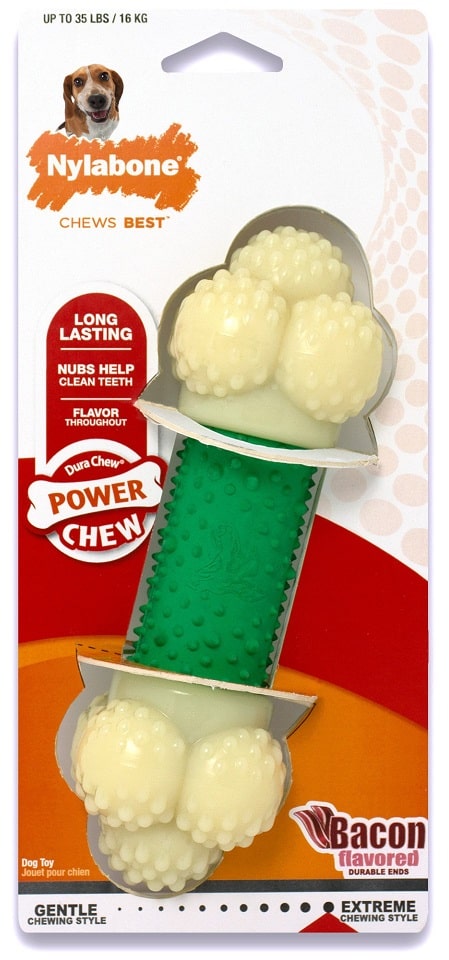
4. Mental Stimulation and Cognitive Development
Chewing activities stimulate a dog’s mind, promoting cognitive development and problem-solving skills. Interactive chew toys, such as puzzle feeders or treat-dispensing balls, require dogs to strategize and manipulate objects, keeping their brains active and engaged. It’s also a way for both puppies and mature dogs to explore and learn about the world around them.
5. Chewing Helps Prevent Destructive Behavior
Providing dogs with appropriate chew toys helps redirect their natural chewing instinct away from destructive behaviors, such as chewing on furniture or household items. By satisfying their need to chew, owners can safeguard their belongings while promoting positive chewing habits.
6. Alleviating Boredom and Enriching the Environment
Chewing serves as a form of dog enrichment, preventing boredom and providing mental stimulation. Rotating chew toys and offering a variety of textures and flavors keep dogs engaged and entertained, enriching their environment and enhancing their overall well-being. Chewing is also a great way to tire out your dog.
Chewing plays a vital role in the physical and mental well-being of dogs, encompassing benefits that extend far beyond just entertainment. From promoting dental health and relieving stress to providing mental stimulation and exercising jaw muscles, chewing is an integral part of a dog’s daily routine. By recognizing the importance of chewing and offering appropriate chew toys, owners can ensure their furry friends lead happy, healthy, and fulfilling lives!

Whether your dog is a seasoned chewer or just a young pup, supervise ALL chewing to protect your dog!

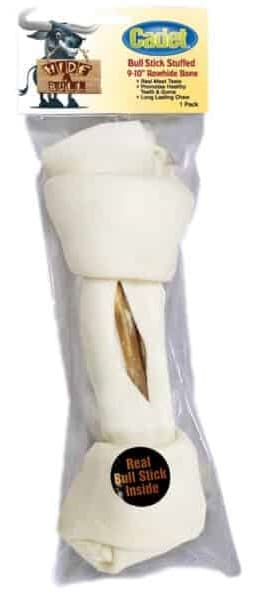
Tiny Dog Pet Supplies
is your one-stop shop for all things “dog” under one WOOF!
Tiny Dog has affordable chew toys and bones to keep your puppy and adult dog happy and engaged for hours!
Like the Bully Stuffed Hide-a-Bull Bone
(with a bully stick stuffed inside!) pictured on the left
or the chew toys mentioned.
(Remember, a tired dog is a happy dog!)
How can we help you?
Feel free to call us at 423-726-2313,
or email Myra at Myra@TinyDogLLC.com
or Kevin at Kevin@TinyDogLLC.com today!

